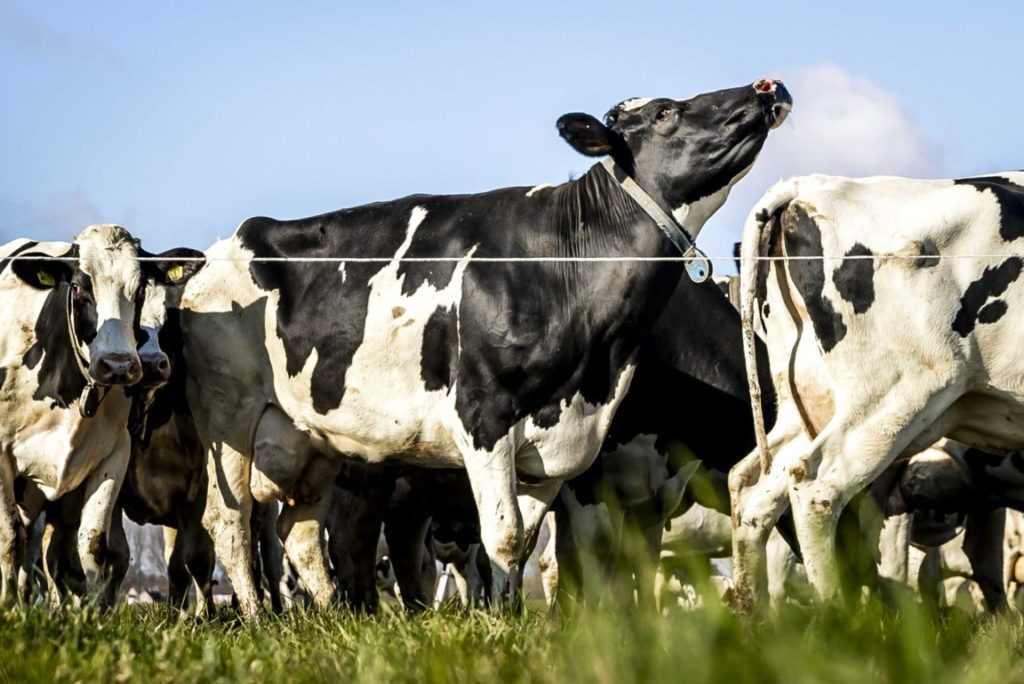The European Union's investment aimed at making its agriculture policy more climate-friendly failed to lead to a reduction in greenhouse gas emissions from farming, a report from the European Court of Auditors (ECA) found.
The main reason behind this is that most measures supported by the Common Agricultural Policy (CAP) have low climate-mitigation potential, and the CAP does not incentivise the use of effective climate-friendly practices, the report published on Monday stated.
“The EU’s role in mitigating climate change in the agricultural sector is crucial because the EU sets environmental standards and co-finances most of Member States’ agricultural spending," Viorel Ștefan, an ECA member who is responsible for the report, said in a press release.
First launched in 1962, the EU’s CAP aims to support farmers, the rural economy and improve agricultural productivity to ensure a stable supply of affordable food, among others, whilst tackling climate change.
However, despite the more than €100 billion the EU invested in climate change in the last six years, the agricultural sector's greenhouse gas emissions have not decreased since 2010, the Court found.
The Court analysed whether the 2014-2020 CAP budget supported practices with the potential to reduce greenhouse gas emissions from three sources: livestock, chemical fertilisers and manure, and land use, and whether it incentivised countries to take up these practices more than in the previous period (2007-2013).
It found the CAP does not seek to limit livestock numbers, even though it represents around half of the emissions from agriculture; nor does it provide incentives to reduce them, whilst it "includes the promotion of animal products, of which the consumption has not decreased since 2014 - further contributing greenhouse gas emissions rather than reducing them."
Meanwhile, it found that emissions from chemical fertilisers and manure increased between 2010 and 2018, whilst practices that are demonstrably more effective to cut emissions, such as precision farming methods that match fertiliser applications to crop needs, received little funding.
It also noted that the greening scheme "was supposed to enhance the environmental performance of the CAP, but it did not incentivise farmers to adopt effective climate-friendly measures, and its impact on climate has been only marginal."
The ECA recommended that the "new Common Agricultural Policy should focus more on reducing agricultural emissions and be more accountable and transparent about its contribution to climate change mitigation."
CAP and its future
The report comes at a time when the EU’s 2021-2027 CAP budget - which will involve around €387 billion in funding - is under negotiation at the EU level.
A legislative proposal on the reform and future of the CAP was voted through by the European Parliament in October last year and is expected to be implemented from 1 January 2023, with the aim to “incorporate the sustainable ambitions of the European Green Deal,” according to the European Commission.
In the coming months, national governments will submit their national farming plans, laying out how they will implement the CAP reform in their country, and after a vote on the matter sometime after the summer, the agreement will be formally adopted by the European Parliament.
The EU has been accused, by Greenpeace and several scientists among others, of selling CAP as a green reform, whilst opposers argue it is “nothing but greenwashing", and that it will have a negative impact on climate, nature and public health.
“This CAP is set to continue bankrolling animal feed production that devastates nature, wreck the climate, increase the risk of new pandemics, and put small farms out of business,” Greenpeace EU agriculture policy director Marco Contiero said in May.

